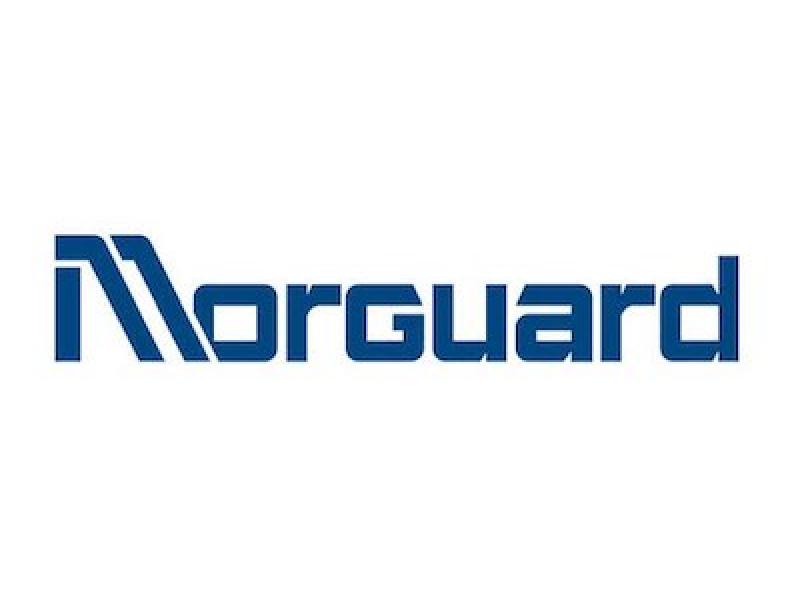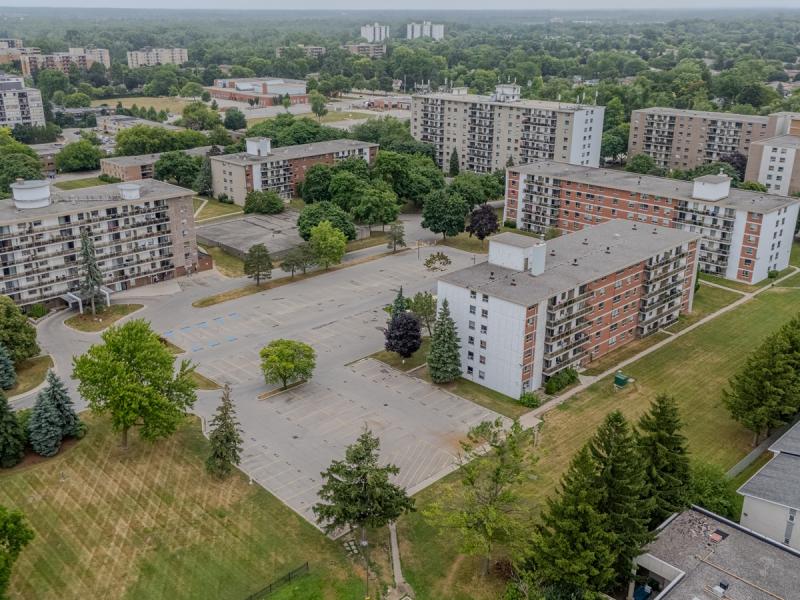
Storefront founder and CEO Mohamed Haouache with Ivanhoe Cambridge retail president Claude Sirois. (Image courtesy Storefront)
Storefront, the world’s largest online marketplace for renting short-term retail space, has teamed up with Ivanhoé Cambridge to enter the Canadian market.
“We’re creating a new market segment by connecting vacant space with a network of brands and retailers,” said Storefront chief executive officer Mohamed Haouache. “The model has been successful in North America, Europe and Asia, and that’s why we’re excited about launching in Canada as our next market.”
New York City-based Storefront debuted in 2014 and now operates in 10 countries. It will launch next in South Korea.
Storefront has a network of more than 10,000 space listings and teams in place in Paris, Hong Kong, London and Amsterdam. It will establish a team in Montreal during the next few months.
Storefront’s business model
“Storefront is a traditional marketplace connecting two needs,” said Haouache. “On one side we have listings owners and their vacant spaces, and on the other side we work with 100,000 brands looking for space opportunities.
“The model is very close to an Airbnb model, and that’s the reason why The New York Times is calling Storefront the ‘Airbnb of retail.’ ”
Storefront is free for listing owners, while brands pay the company for each space booking. Once Storefront connects the two parties, it’s up to them to reach an agreement.
“It’s really about delivering the right information to decision-makers in a really efficient way in order to lock in timely opportunities,” said Ivanhoé Cambridge business development director Janine St. Pierre. “Clients are looking for a one-stop solution for availabilities, rates, photos and exploring markets they’re not familiar with.
“Really understanding these clients’ unique needs is what led us to seek a partner to assist with this kind of outreach effort. Storefront’s platform makes the process of finding, booking and paying for short-term space really fast and easy for the client. It also creates efficiencies for our team here.”
Seven malls involved in program
The agreement between Montreal-based Ivanhoé Cambridge and Storefront provides emerging and established brands and retailers with access to pop-up spaces in seven shopping centres:
* Bayshore Shopping Centre in Ottawa;
* Guildford Town Centre in Surrey, B.C.;
* Mapleview Centre in Burlington;
* Mayfair Shopping Centre in Victoria;
* Place Ste-Foy in Québec City;
* Oshawa Centre in Oshawa;
* and Southgate Centre in Edmonton.
“We aligned Storefront with our fashion-centric centres that are known for their mix of what I would call the most sought-after retail brands that are frequented by very similar trend-savvy, affluent shoppers,” said St. Pierre. “It allows us to explore multi-centre opportunities if we have a brand that wants to come in and rotate between those centres.”
Ivanhoé Cambridge is the real estate subsidiary of the Caisse de dépôt et placement du Québec, with interests in more than 1,000 residential, office, retail, industrial and logistics buildings around the world. It will add listings at other Canadian malls in the future.
St. Pierre said Ivanhoé Cambridge wants to attract non-traditional opportunities as well as those that are “sexy and exciting” to customers. The company is hoping to cultivate new relationships with clients which could develop into more permanent tenants.
“More than one-third of requests in every country that we’re accessible in is coming from non-domestic brands,” said Haouache. “In Canada we expect to have a similar statistic and expect to bring at least one out of three brands to Ivanhoé that’s not from Canada.”
Each Ivanhoé Cambridge shopping centre offers a variety of sizes and layouts, ranging from parking lots, large spaces and in-line retail units to smaller, common-area set-ups. They can be used for new product launches, special events or promotions, and experiential activations that showcase the brand and increases visibility. Spaces can be booked for as short as one day or as long as a few months.
Ivanhoé Cambridge’s pop-up experience
“We know that we’re competing with all kinds of different spaces now, whether it’s galleries, streetfronts, markets or the digital space,” said St. Pierre. “The great thing about working with Storefront is that it really allows us to remind people who are out looking for that perfect pop-up space of why the shopping centre is an excellent choice for their initiatives.”
Pop-ups are a growing part of Ivanhoé Cambridge’s retail leasing business and St. Pierre said it has enjoyed success with them across its portfolio. She cited a recent example by House of Marley and its headphones, ear buds and audio products, which were a new product category at Vaughan Mills.
“It was a vehicle for them to share their brand story and make a personal connection with shoppers that would extend past their pop-up, which was a month-long initiative. It was a success for them but it was also a win overall for our shopping centre.”
Analytics showed mall visitors spent 18 more minutes and $50 more than usual during House of Marley’s tenancy.
“We know the value of bringing in these memorable experiences for shoppers so that they talk about them when they leave and they’re inspired to come back again,” said St. Pierre.
While space owners work with the short-term tenants, Storefront also supports those who book through its site with resources to optimize the business potential of the space before, during and after occupancy.
The future of retail
Haouache believes Storefront will be a key player in how retail evolves, predicting shopping centres could derive up to half of their revenue from pop-up stores within the next 20 years.
“It’s very unlikely that the brands of the future will commit to long-term leases because they want flexibility and to be able to adapt to any kind of market,” he said.
“The lifetime of a product is so short that it’s very dangerous for a brand to commit to a three-, six- or nine-year lease, knowing that the brand might not be alive in the next three years.”







